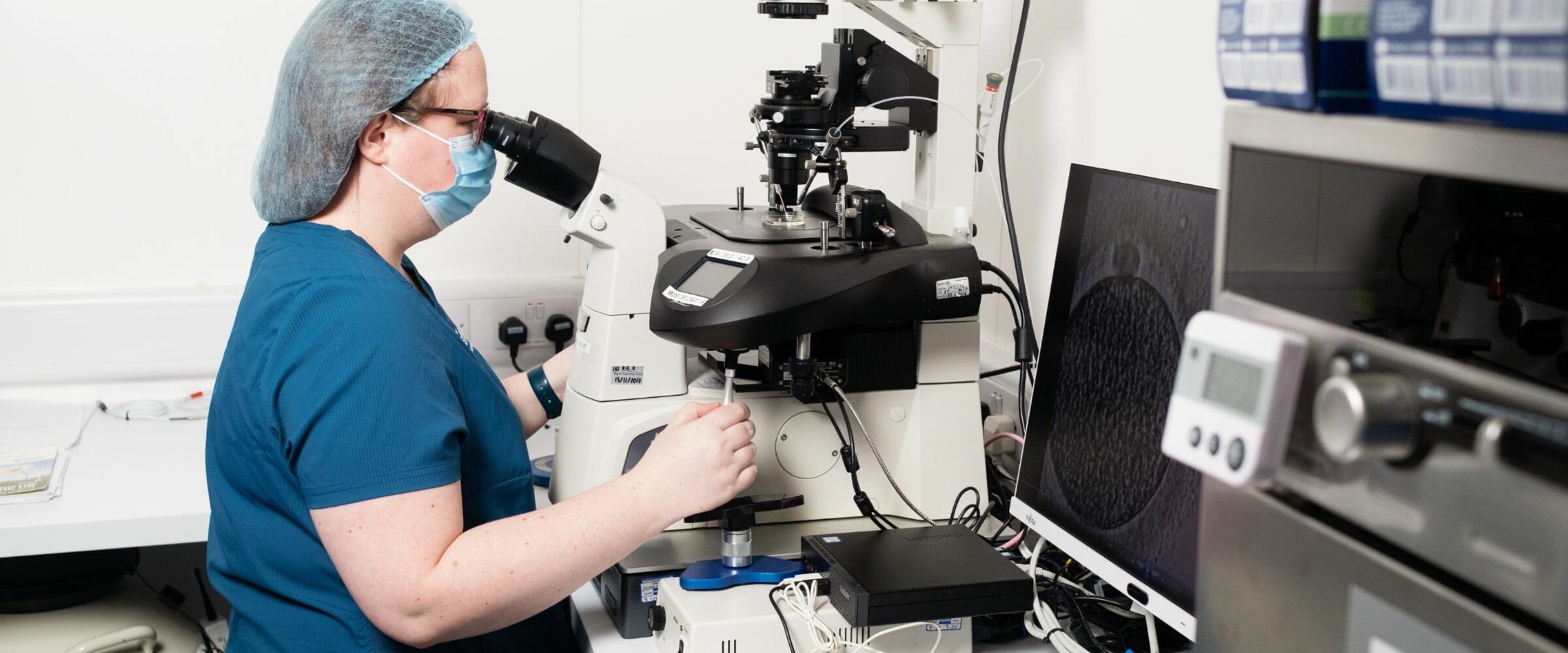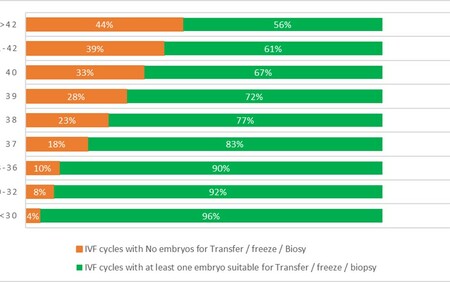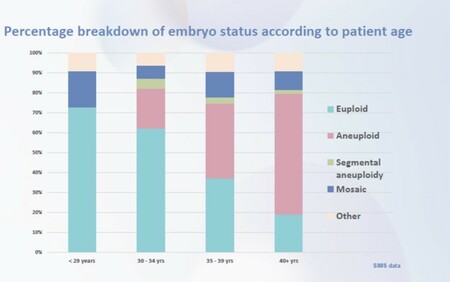
PGT-A - What you need to know
Preimplantation Genetic Testing for Aneuploidy (PGT-A) (Formerly known as PGS) is a specialised diagnostic technique that can be used to test embryos for a chromosomal abnormality. This technique offers an earlier test than alternative ante-natal screening tests which are normally offered between 11-14 weeks of pregnancy.
Who is PGT-A suitable for?
Any patient undergoing fertility treatment can choose to undergo a PGT-A cycle. However, there are some patients that may particularly benefit from this type of testing.
For women who have had multiple miscarriages or multiple failed IVF cycles, genetic testing can potentially identify problems that have caused previous IVF cycles or pregnancies to fail. Studies have shown that, in some cases, difficulty in achieving a pregnancy is caused by losses or increases in the number of chromosomes in the embryo. An aneuploid embryo is unlikely to implant or go to term.
Patient age is still the main predictor of IVF success. A decline in reproductive outcome is starting to be observed for women after the age of 35 on average, with a stiffer dropdown after the age of 40. This age-outcome correlation is primarily reflected by the incidence of IVF successful cycles (cycles that finish with at least one embryos suitable for transfer, freeze, or biopsy) vs. IVF cycles with no embryo suitable for treatment. (See Fig 1 below).
Several studies have shown that oocyte aging is the main cause of increasing aneuploidies, and our data from the PGT-A program is in accordance with this information. (See Fig 2 below).
Although patient age above 40 would be a strong indication for PGT-A, this type of testing is actually more effective in the 35-40 age group, where a higher number of embryos are usually obtained following an IVF cycle, therefore selection by PGT-A could significantly decrease the time between treatment and healthy birth.
For those who have had a known pregnancy with an embryo with a chromosomal abnormality, PGT-A can ensure that there are no chromosomal abnormalities in this specific transfer.
What is the PGT-A process?
PGT-A begins with IVF treatment to create embryos. Genetic analysis is performed on the embryo development on day 5 (blastocyst biopsy). The material removed from the embryo is then examined to see if there are any gains or losses in the number of chromosomes. These steps are explained below:
Creating embryos: The only way to create embryos for PGT-A is through IVF or ICSI treatment. You will be given specific information regarding your treatment protocol, which will be identical to any patients undergoing IVF/ICSI treatment to create embryos.
Analysing embryos: A small hole is made in the outer shell of the embryo and a fine needle passed inside the embryo to remove a collection of cells for day 5 biopsy. The cells analysed do not come from those cells producing the embryo (baby) but from extra-embryonic cells that will go on to form the placenta. The material removed from the embryos is analysed using a technique called Next Generation Sequencing (NGS), which provides information about all 23 pairs of chromosomes. This analysis is able to tell us whether an embryo is likely to have a normal number of chromosomes. Biopsied embryos are then vitrified (fast frozen) whilst results are analysed.
Getting results: The results of this test typically take up to 4 weeks from the time of biopsy to process as samples are batched for analysis to reduce the cost to the patient. NGS is thought to be more sensitive than other older techniques such as comparative genomic hybridisation (CGH).
Storing embryos: The recommendation for PGT-A cycles is to freeze all biopsied embryos without transfer until the results of the genetic analysis are known. Typically preparation for this can start approximately 6 weeks after egg collection.
Success Rate
Recent sources from laboratories providing this technique to clinics have suggested clinical pregnancy rates as high as 65% per cycle with transfer of a euploid embryo. Unlike undiagnosed embryos, the chances of success appear to be similar across all age groups. Recent studies suggest PGT-A can improve clinical pregnancy rates and decrease miscarriage rates although more trials are needed before we can be reassured that this technique is effective and can be applied in routine practice.
Our Expert Team
On our expert team, we have some of the leading embryologists in Ireland who are specialised in PGT-A testing.
To find out whether PGT-A can help you fall pregnant, please book an appointment with a Sims IVF fertility specialist or contact us.



